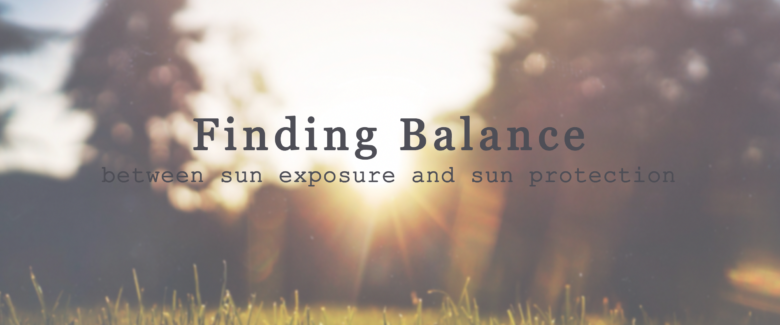If you live in a place with sun year round you may not be as excited as a person like me, from Michigan, to bask in the rays of the sun come June. While we only survive because we have the sun. We also have many fears around the exposure we can get from it. Finding a balance between sun exposure and sun protection is key. Here are some pointers:
- Humans make vitamin D in the presence of sunlight. We can also supplement it or consume it from foods like eggs, salmon, sardines, and cod liver oil.
- Vitamin D is important for calcium transport into bones, teeth and other tissues like muscle and nerves, the immune function, especially in the gut, and a state of well-being, like happiness.
- Vitamin D can help prevent cancer (like skin cancer) and autoimmune disease, strengthen bones, improve mood, protect against dementia, help with weight loss, and decrease asthma symptoms.
- We have become less exposed to the sun, and therefore the production of vitamin D, over time with the use of more clothing, the lightbulb, long hours in the office, and now sun screen.

- Sunscreens block the sunlight needed to make Vitamin D
- Sunscreens may contain oxybenzone, retinyl palmitate, octyl-methoxycinnamate, butyl-methdiebenzoylmethane and benzophenone 2. These can be toxic and have been linked to cell damage in the body.
- Exposure to the sun, when done slowly without burning, is the best way to get vitamin D and other benefits.
- Vitamin D level is evaluated with a blood test: 25 OH Vitamin D. The optimal amount is 50-80 ng/ml year round.
- Don’t burn. Once you have had the maximum amount of sun for your body, wear protective clothing, stay in the shade or wear a non-toxic sunscreen with SPF15 for exposed areas. Reapply often. My favorites are here and here. It’s not exposure to the sun that contributes to cancer as much as it is intermittent or severe sunburns.
- Different skin types need different amounts of sun to get adequate vitamin D without burning. Lighter skin which synthesizes vitamin D with less exposure may only need 5-10 minutes. Someone with darker skin may need up to 20 minutes.
- Eating large amounts of sugar and inflammatory omega 6 oils (vegetable oils) contribute to skin cancer.
- If you need to supplement look for D3, not D2. D2 can irritate blood vessels. You can find my favorite vitamin D supplement here. Consult with your doctor about a dose and check your blood level every 3 months until you are within range for a year.
The bottom line is enjoy the sun but don’t get burned. Have your vitamin D level checked every time you do blood work and know your vitamin D level. If you need to supplement, use a high-quality D3 form.


